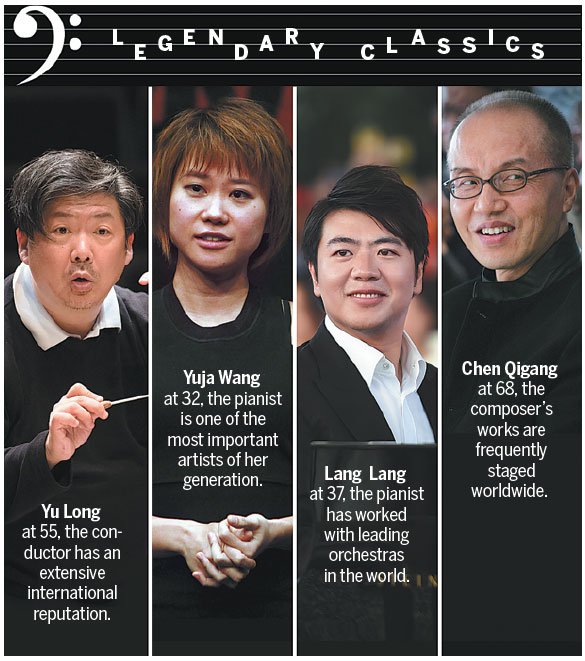 |
|
[Photo provided to China Daily] |
Compared with the West, China is new to the classical music world, but is considered a significant market that holds the key to the genre's future.
Since the People's Republic of China was founded in 1949, numerous symphony orchestras have emerged in the country, such as the Central Symphony Orchestra - now known as the China National Symphony Orchestra, which was founded in 1956, and the Guangzhou Symphony Orchestra, founded in 1957.
According to the nonprofit China Symphony Development Foundation, there are now more than 80 professional symphony orchestras in China, presenting opportunities not only for young Chinese musicians but also for those from around the world.
The year 1978 was a key one for the development of classical music in China, as it marked the first time that students could take part in national college entrance exams and enroll at universities since the "cultural revolution" (1966-76).
That year, some of the best-known Chinese composers today, including Tan Dun, Chen Qigang, Guo Wenjing, Zhou Long and Liu Suola, became the first group of students to major in composition at the Central Conservatory of Music in Beijing. They also became the first generation of Chinese composers to be recognized by Western audiences.
For example, Chen Qigang, born in Shanghai in 1951, studied in France in 1984 after graduating from the Central Conservatory of Music, where he learned from the French composer Olivier Messiaen. Chen was music director for the opening ceremony for the 2008 Beijing Olympic Games, for which he composed the song You and Me. His works are frequently staged worldwide.
Tan attracted worldwide attention after composing the score for director Ang Lee's film Crouching Tiger, Hidden Dragon in 2000, for which he won an Oscar, a Grammy Award and a BAFTA (British Academy of Film and Television Arts) Award.
Another important figure on the Chinese classical music scene is Yu Long, 54, who was born into a musical family in Shanghai and studied at the Shanghai Conservatory before going to the Hochschule de Kunste in Berlin.